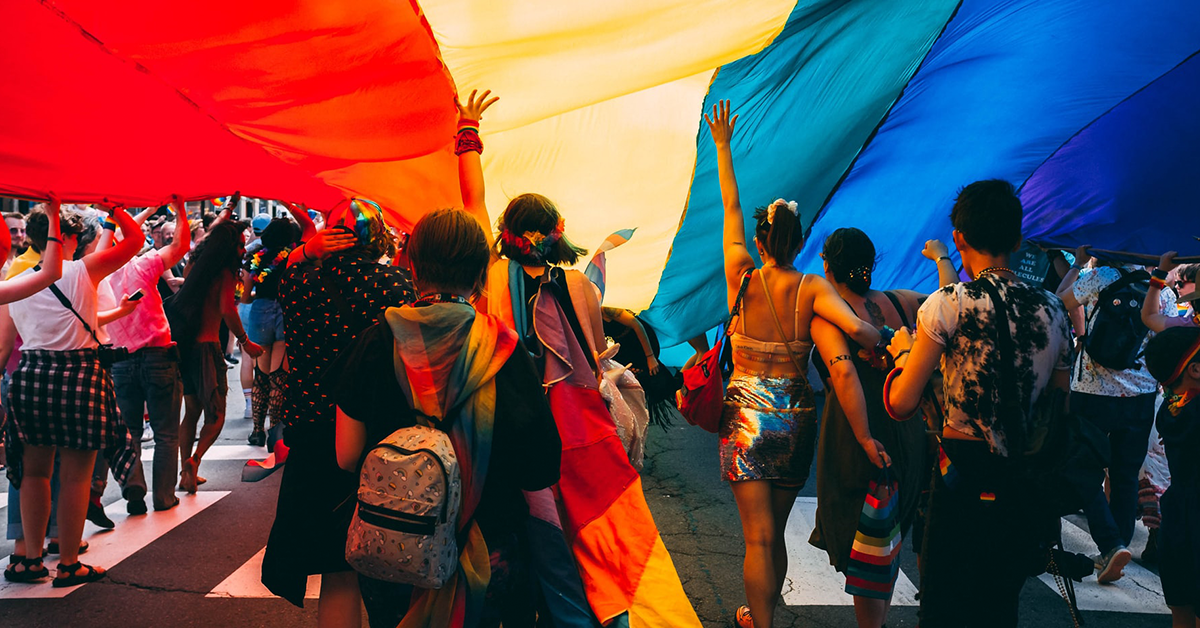So you want to be a good LGBTQIA+ ally, but need to know how you can better support the queer community?
Well, you’re in luck.
The Human Rights Campaign’s Coming Out Ally Resource has some great suggestions on how you – and your Gen Z kid – can show support to the LGBTQIA+ people in your life.
Of course, there’s no one ‘right’ way to do so, but there are many ways to demonstrate support that can feel easy and natural.
Here’s what the HRC recommends:
- Create social settings that bring your straight, cisgender and LGBTQ friends and family together.
- Talk openly and honestly with your LGBTQ loved ones about their lives.
- Find opportunities to talk openly with your straight and/or cisgender friends about your LGBTQ friends and family and the issues they face.
- Make sure that you include the partners of your LGBTQ loved ones in events and activities, just as you would any other friend’s spouse or significant other.
- If you hear an anti-LGBTQ comment or joke, speak up and explain why such comments or jokes are harmful and offensive.
- Integrate inclusive language into your regular conversations, professional interactions and/or spiritual life.
When it comes to starting an open dialogue with an LGBTQIA+ person, respectful questions show you’re interested, such as:
- What was it like growing up?
- How did you know it was the right time to come out?
- What has the coming out process been like for you?
- How are you holding up?
- What can I do to support you?
(Source: HRC’s Coming Out Ally Resource)
Speaking of ‘coming out’ – what does it mean, and what can you do if someone ‘comes out’ to you?
“Coming out is understood by many to mean the act of disclosing one’s non-straight sexuality or non-cisgender gender identity to others…” the HRC explains.
“But it also refers to the process by which an individual tells people in their life about their gender and/or sexual orientation.”
The media (and society) has historically framed ‘coming out’ as a part of a member of the LGBTQIA+’s community journey to acceptance (of the self and within the community) and wellbeing.
“But for some, coming out may be worse than holding that information in. It is important not to pressure anyone to come out, as the timing of that decision rests solely with the person coming out and what feels right to them.”
If someone ‘comes out’ to you (for the first time), the HRC recommends being honest that this is new for you. Then:
- Ask them to be honest with you about what you say or do that may make them uncomfortable
- Tell them if they do or say something that makes you uncomfortable. But at the same time, examine why you feel uncomfortable and see if that’s a feeling you can change
- Be as open and honest as you would like them to be with you
- Tell them if you need a little time to process the information. Be reassuring
- Explain to them that revealing their sexual orientation or gender identity has not changed how you feel about them, even if it takes a little while for you to digest what they have told you
- Remind them that you still care for and respect them as much as you ever have or more
(Source: HRC’s Coming Out Ally Resource) For more resources on how to be a better LGBTQIA+ ally, check out the Human Rights Campaign’s website.






